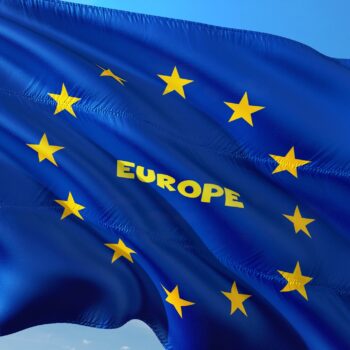
“Made in EU” enjoys the highest recognition worldwide. Whether mechanical engineering, vehicles or clothing: the designation of origin stands for top quality and compliance with strict specifications.
However, only a few consumers associate this with the area of IT security. For this reason, the largest German IT security association TeleTrusT has initiated its own seal of approval "IT Security made in Europe". Manufacturers, retailers and users should all benefit from this, and top IT companies in the European Union should step into the limelight.
IT security made in the EU creates trust and transparency
“Last year we established the ´IT Security made in EU´ seal of approval. This gives companies, institutions and consumers the security that the providers and solutions labeled in this way meet the high European standards in terms of data protection and security, ”says Thorsten Urbanski, head of the IT Security made in EU initiative. To do this, the company's headquarters must be in the EU and it must offer trustworthy IT security solutions. For example, these must not contain so-called backdoors, i.e. hidden accesses. Any company wishing to bear the seal of trust must also make a clear commitment to Europe as a location. This means: IT security research and development must primarily be carried out in the European Union. The requirements of the EU General Data Protection Regulation should be fully met without any ifs, ors, or buts.
Benefits for companies, consumers and retailers
The head of the initiative sums up the advantages as follows: “IT security made in EU offers commercial and private consumers simple and clear guidance. You can see at first glance that the marked providers and solutions meet the strict European requirements for quality and data protection. In short: We create transparency! ”IT retailers also benefit from this: The seal can help to consolidate the trust of existing customers and, above all, to win over new customers.
Lighthouse effect on other projects too
But the seal alone is not enough. IT security manufacturers have to go on the offensive together, demands Thorsten Urbanski: “Unfortunately, we Europeans often tend to put our lights under a bushel. Companies in Europe and especially the technology companies based there are full of innovation. It often only comes to its full potential when the providers become involved across borders in Europe and use the EU synergy effects. Thanks to legal certainty and the protection of intellectual property, the single market offers young companies in particular the opportunity to assert themselves in global competition. "
The new seal of approval may also fuel many other projects that are currently emerging due to the current rapidly advancing digitization. There, too, the question of IT security will inevitably arise and perhaps even “IT security made in EU” will serve as a blueprint for further innovations. In an exclusive interview, Thorsten Urbanski describes in detail the idea behind "IT security made in EU" and its advantages.
More on this at ESET.com
About ESET ESET is a European company with headquarters in Bratislava (Slovakia). ESET has been developing award-winning security software since 1987 that has already helped over 100 million users enjoy secure technology. The broad portfolio of security products covers all common platforms and offers companies and consumers worldwide the perfect balance between performance and proactive protection. The company has a global sales network in over 180 countries and branches in Jena, San Diego, Singapore and Buenos Aires. For more information, visit www.eset.de or follow us on LinkedIn, Facebook and Twitter.
